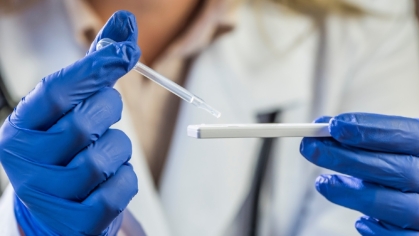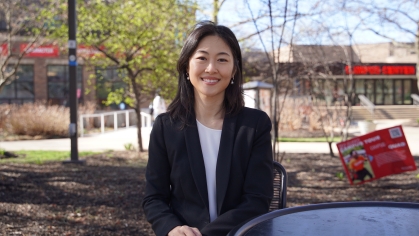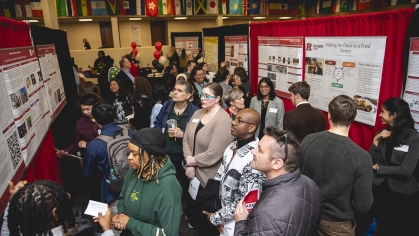Delivering Health Care to the Underserved

Strides in medicine and public health have revolutionized modern life, considerably extending life expectancies and preventing serious diseases that were once commonplace for many Americans. Unfortunately, not all populations have fully reaped the benefits of these advances.
The South Jersey Institute for Population Health (SJIPH) wants to change that. The nonprofit, created in 2018 through a state grant received by the Rowan University/Rutgers University–Camden Board of Governors, seeks to improve population health and reduce health disparities in southern New Jersey’s urban and rural communities by supporting collaborations between community stakeholders and research partners from Rowan University and Rutgers–Camden.
SJIPH recently awarded over $349,000 to 13 different research projects as part of its third annual funding cycle. Since its inception, the organization has awarded 34 grants totaling nearly $1 million.

“Much of the attention and funding for public health in the state focuses on North Jersey,” said Stephen Danley, co-lead for SJIPH, associate professor of public policy and administration, and director of the Center for Urban Research and Education at Rutgers–Camden. “But Southern New Jersey has significant, specific health challenges, and these grants are designed to expose and address existing health disparities through interventions aimed at closing the gaps.”
According to the most recent Commonwealth Fund report on advancing health equity in New Jersey, nearly one in four Hispanic residents lacks adequate health insurance, and Black and Hispanic residents die from preventable causes at rates significantly higher than those of other groups. The report noted that the pandemic exacerbated persistent racial and ethnic gaps in health care.
“These disparities matter, especially for individuals in South Jersey who have shorter life expectancies than their northern neighbors,” said Danley. “They also matter for the state; addressing health disparities downstream is more costly than preventive measures.”

In addition to projects that address the immediate health needs of the South Jersey community, SJIPH also funds initiatives that seek to gain a deeper understanding of how environmental and societal pressures can negatively impact population health.
Rutgers–Camden is the lead organization on one such study, "Exploring the Multi-Faceted Relationships Between Criminal Justice System Contact and Health Among Camden Residents: A Pilot Study," which was funded by the most recent round of grants.

Led by Nathan Link, associate professor of criminal justice, the survey will seek to understand the connection and impact of interactions with the criminal justice system and poor health outcomes, both for individuals and for Camden as a whole.
“This funding enables our team to carry out collaborative research with community agencies that we always wanted to do but didn’t have the resources to execute,” Link said. “The work is exciting, policy-relevant, and will have an impact in the real world, which is our favorite kind of research.”
A lasting impact in the real world is the long-term goal.
“Bottom-up, community-focused solutions to the public health disparities in South Jersey require funding and support,” said Danley. "We are proud to fund these partnerships and excited to see their impact on the region."


